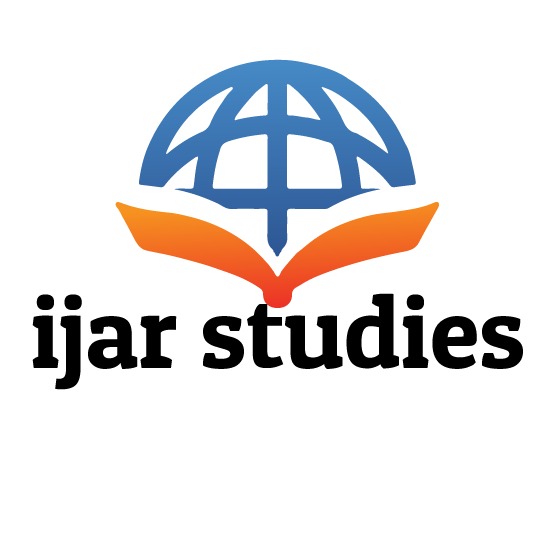تتمتع بلاد المغرب بكثافة تاريخية جعلت ماضيها مستمرا في حاضرها، ولأن التاريخ هو الذاكرة الجماعية بامتياز، فإن العودة إليه تقصيا وتحليلا ومقارنة قضية منهجية بالغة الأهمية لتفسير وفهم الحاضر و استشراف المستقبل. وحيث أن الاقتصار على دراسة التاريخ المحلي القطري تقدم صورة مجتزئة مبتورة لخلوها من أبعاد التأثير والتأثر الخارجية المتدخلة في صياغة الحدث التاريخي المحلي، تأتي هذه الدراسة الموسومة" مجتمعات ولايات المغارب العثمانية من القرن السادس عشر إلى القرن التاسع عشر الميلادي مقاربة سيوسيوتاريخية"، لتلبي طموحا بالمساهمة الجادة في إثراء التوجه الذي مافتئ يتنامى والمتعلق بدراسة "التاريخ الكلي"، ومن ضمنه تاريخ الولايات المغاربية خلال الوجود العثماني كوحدة جغرافية وسياسية كون الملابسات التاريخية التي مرت بها هذه المنطقة طيلة فترات الحكم العثماني، كانت على قدر كبير من التشابك والتشابه، والتداخل والتأثير والتأثر كنتيجة طبيعية لجملة الظروف الموضوعية التي عرفتها بلاد المغرب منذ استئثار العثمانيين بها، عدى المغرب الأقصى الذي ظل بمنأى عن سيطرتهم . فرغم ترسخ هذه القناعة في خطاب عديد الباحثين والمهتمين بهذا الشأن، إلا أنها لم تجد بعد طريقها إلى الإنجاز بالقدر الكافي والنسق الوافي، لذلك تحاول هذه المقاربة أن تأخذ بعين الاعتبار هذه الروابط والقواسم دون طمس أو إغفال الخصوصيات أو نفي التباين بين مستويات التركيب التاريخي أو الاجتماعي لكل بلد. لقد دفعت جغرافيا وموقع بلاد المغرب إلى إبراز المنطقة كموقع إستراتيجي عبر العصور، وخلال القرن السادس عشر جاء التحالف العثماني المغاربي (عدى المغرب الأقصى)، استجابة للتحولات الاستراتيجية التي طرأت على البنية التقنية للبحرية العسكرية الأوروبية، والتي لم يعد لبلاد المغرب القدرة على مواجهتها أو احتواء مخاطرها. لقد كان من أهم نتائج هذا التحالف الذي سمح بدخول العثمانيين بكل ثقلهم إلى المنطقة، نشوء علاقات وتفاعلات اجتماعية وسياسية ساهمت في تنوع الفئات السكانية نتيجة علاقات المصاهرة بين الوافدين من المشرق وأوروبا مع العنصر المحلي، لاسيما سكان المدن الذين خضع تقسيمهم لمعايير مادية وسياسية ، فكانوا أقل تجانسا مقارنة بمجتمع الريف ، هذا فضلا عن دور الموقع الجغرافي وطبيعة المصالح في تحديد علاقة كل جماعة بالسلطة العثمانية. وعليه تسعى هذه المداخلة لتسليط الأضواء حول واقع وعلاقات مجتمعات بلاد المغارب إبان الوجود العثماني ،سواء ما تعلق منها بالعلاقات البينية أو بين السلطة و السكان من خلال الأساليب التي طبقها الحكام والتي أنتجت تباينا في البنية المجتمعية حسب نوعية ومدى تأثير الجهاز الإداري في العلاقات الاجتماعية . وهذا كله في إطار مقاربة سوسيوتاريخية تحلل العوامل المتحكمة في بنية مجتمع ولايات المغرب العثمانية ومدى تأثر وطبيعة تطور هذه البنية في ظل الوجود العثماني وسياساته الاجتماعية والاقتصادية.
The history of the Maghreb countries is characterized by a historical intensity that has made its past continuous in its present, and because history is the collective memory by excellence, the return to this history by examination, analysis and comparison is a very important methodological question to explain and understand the present and to foresee the future. The study limited to the local history presents a partial and cut image because it does not contain the dimensions of the influence and the external impact participating in the formulation of the local historical event. this study entitled '' The societies of the Maghreb Ottoman states from the 16th to the 19th century, a historical social approach '' satisfies an ambition to participate seriously in the enrichment of the orientation which has evolved constantly concerning the study of '' total history '' including the history of the Maghreb states during the Ottoman existence as a geographical and political unit, given that the historical circumstances experienced by this region during the Ottoman reign had overlaps, similarities, overlaps, influence and vulnerability as a natural result of the set of global objective circumstances characterizing the Maghreb countries since their appropriation by the Ottomans, with the exception of Far Morocco, which remained uncontrollable. Despite the affirmation of this conviction in the speech of many researchers and interested in this subject, it has not yet been completed sufficiently. Hence, this approach tries to take into account these links and lines without blurring or ignoring the specificities or denying the differences between the levels of historical or social composition of each country. the geography and location of the Maghreb countries have pushed to show the region as a strategic site through the eras, and In the sixteenth century, the Ottoman Maghrebin alliance (with the exception of Morroco) appeared in response to the strategic changes in the technical structure of the European navy, that the Maghreb no longer had the capacity to confront or contain its risks One of the most important results of this alliance, which allowed the Ottomans to gain their full weight in the region, was the emergence of social and political relations and interactions that contributed to the diversity of groups, resulting from marital relations between East and Europe immigrants and the local component, especially urban dwellers, whose distribution was subject to physical and political criteria, they were less homogeneous in comparison with rural society, as well as the role of geographical location and nature of interests in determining the relationship between each group with Ottoman authority. Therefore, this paper seeks to focus on the reality and the relations of the Maghreb communities during the Ottoman period, that they concern the relations between the authorities and the population through the methods applied by the leaders

By subscribing to E-Newsletter, you can get the latest news to your e-mail.